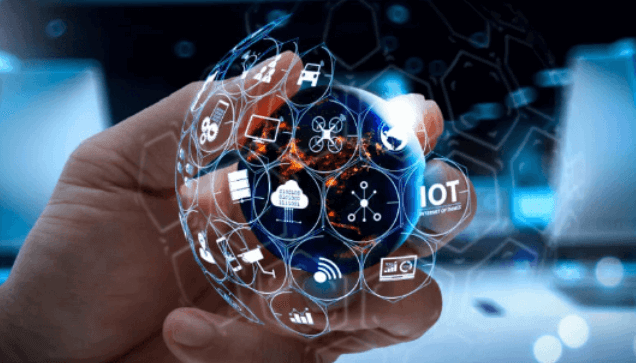Technology That Will Change the World

The world is constantly evolving, and technology plays an integral role in these changes. From artificial intelligence to virtual reality, the advances of modern technology are transforming how people live their lives and interact with each other. This article will explore technological innovations that could revolutionize the world and drastically alter people’s lives. It will examine emerging technologies’ potential effects on society and explore some ethical considerations surrounding their development. Finally, it will discuss some of the ways in which people can prepare for and capitalize on these changes. By understanding the power of technology to shape humanity, you can better apprehend the possibilities of the future and equip yourself to thrive in an ever-evolving world.
Space Technology
Space technology has come a long way in recent years, and space exploration is becoming more accessible to the general public. Advances in SpaceX technology have resulted in reusable rockets that can bring people closer to outer space. This could enable humans to explore planets and moons beyond their own solar system, potentially discovering new worlds and uncovering answers to some of life’s biggest questions. There’s no doubt that space technology has the potential to change the world, from providing valuable insights into the universe to even revolutionizing transportation. Whatever the outcome, space technology could drastically transform the way humans interact with each other and the world.
Another area where space technology could significantly impact is providing access to renewable energy. Innovative technologies, such as solar sails and space-based solar power, could revolutionize the way everyone uses energy, potentially making renewable sources more easily accessible and enabling people to reduce their reliance on traditional forms of energy. The possibilities of space technology are seemingly endless and could revolutionize the way humans inhabit the planet.
Robotics
Robotics technology has come a long way in recent years, with robots now being used for everything from construction work to medical treatments. This technology could revolutionize the way humans interact with machines and make it easier for people to accomplish tasks that are too difficult or dangerous for humans. Additionally, robotics has the potential to drastically reduce labor costs, which would lead to greater economic efficiency and improved job opportunities for many people. Robotics also has applications in healthcare, enabling doctors to perform complex surgeries and tasks with greater accuracy and precision.
Robotics also has implications for the environment, as robots could be used to clean up hazardous waste or operate more environmentally friendly factories. This technology could lead to the development of safer and greener technologies that reduce everyone’s reliance on fossil fuels and help preserve natural resources. Robotics could also be used to explore extreme environments where humans cannot, potentially revealing new discoveries and insights into the universe. The potential of robotics to revolutionize the world is vast, and it’s undeniable that this technology could drastically change how people interact with the world.
3D Printing
3D printing is a revolutionary technology that has the potential to revolutionize manufacturing processes and enable people to create custom products with greater ease. This technology gives people the ability to print anything from toys to medical devices, potentially reducing production costs and enabling businesses to produce goods much faster than traditional methods. Additionally, 3D printing can be used in education by allowing students to explore new ideas and concepts without having access to expensive equipment or materials.
Finally, 3D printing could also have applications in the medical field, enabling doctors to create customized prosthetics or implants. This means that people could potentially receive more tailored treatments and recover faster from their illnesses. Not only could 3D printing completely transform the way the world interacts with machines, but it also could potentially make healthcare and manufacturing more accessible to people around the world. Whatever the outcome, 3D printing could possibly change the way people live their lives. This technology has immense potential to revolutionize the way humans live and interact with each other.
Artificial Intelligence
The development of artificial intelligence (AI) is rapidly progressing and could potentially revolutionize the world in more ways than one. AI has the potential to automate many everyday tasks and processes, enabling people to complete them faster and more efficiently. Additionally, AI-driven technologies make it easier for people to understand complex data patterns and quickly analyze large amounts of information. These capabilities could open up new possibilities for a variety of industries, from healthcare to finance.
AI also has implications for security and privacy. Through its ability to recognize faces and track movements, AI can be used as a tool for surveillance, raising ethical concerns over its use. As such, everyone must consider the potential consequences of artificial intelligence before implementing these technologies on a large scale.
AI could also be used to create new forms of entertainment, such as virtual reality experiences or interactive video games that can adapt to user preferences. Furthermore, it could bring about changes in education, allowing students to learn at their own pace and receive tailored guidance. In short, artificial intelligence could revolutionize the way humans interact with technology, making it easier for people to interact with the environment and providing new opportunities for growth and development.
Augmented Reality (AR)
Augmented reality (AR) is a technology that enables people to visualize and interact with digital content in the real world. This technology has the potential to revolutionize how people experience their environment, bringing digital information into physical space. It could be used in gaming, allowing players to engage with virtual objects and settings within their own living rooms. Additionally, it could have applications in retail stores, providing customers with more immersive shopping experiences. AR could also be used to improve medical diagnosis and treatment by enabling doctors to see a patient’s physiology in greater detail or provide guidance during complex surgeries. Finally, AR may even revolutionize how everyone communicates by allowing people to share messages or images that are visible only to those near us. Your thoughts and ideas can be projected into the physical environment, allowing you to interact with them uniquely.
Quantum Computing
Quantum computing is still relatively new but has the potential to revolutionize how data is processed and analyzed. This type of computing uses quantum physics principles to process large amounts of data faster than ever before. Quantum computers are expected to enable breakthroughs in areas such as medicine, artificial intelligence, finance, logistics, and security – all of which could considerably impact how people live their lives.
Quantum computing could also potentially revolutionize the way people store and access data, with quantum computers capable of storing and retrieving large amounts of information in a matter of seconds. This technology could revolutionize how businesses operate, allowing them to process data quickly and accurately for better decision-making. Not only could this lead to improved efficiency and productivity, but it could also open up new possibilities for research in a variety of fields. This technology could revolutionize the way people think about data and how it is used, unlocking powerful insights into the world. Your thoughts and ideas can be projected into the physical environment, allowing you to interact with them uniquely.
Digital Currency
Digital currencies, or cryptocurrencies, are becoming increasingly popular and could revolutionize the way people pay for goods and services. These digital assets use cryptography and decentralized networks to securely transfer funds without the need for intermediaries, such as banks. In addition, digital currencies operate on a distributed ledger system that is transparent and immutable – making them resistant to fraud and manipulation.
This technology could have significant implications for the global financial system, allowing people of all economic backgrounds access to secure and efficient payment methods. Additionally, digital currencies could reduce transaction costs while increasing speed, making it easier for businesses to send payments across borders or purchase goods from overseas suppliers more quickly. This could potentially lead to increased trade between countries and foster economic growth. Whilst digital currencies are still relatively new, they have the potential to revolutionize the way people think about money and how it is used in society.
Healthcare Technology
Healthcare technology is developing rapidly and is expected to revolutionize how medical treatments are delivered. Technologies such as wearable devices, virtual reality, and telemedicine make it easier for people to access healthcare services regardless of location or financial status. Additionally, healthcare technology can improve diagnosis accuracy by allowing doctors to receive real-time patient condition data.
Artificial intelligence (AI) technologies are also transforming how diseases are diagnosed and treated. AI has the potential to analyze large amounts of data quickly and accurately – enabling doctors to make more informed decisions when treating patients. AI could potentially reduce the time it takes for diagnoses and treatments to be administered, leading to improved patient outcomes.
Conclusion
The possibilities offered by emerging technologies are vast and could change the way people live their lives. From quantum computing to digital currencies to healthcare technology, these advancements can revolutionize various industries and lead to improved efficiency, productivity, and economic growth. Therefore, people must understand the implications of these technologies before implementing them on a large scale. Only when used responsibly can emerging technologies positively impact everyone’s lives and help create a better world for future generations. The future is here – and it’s up to people to make the most of it.




